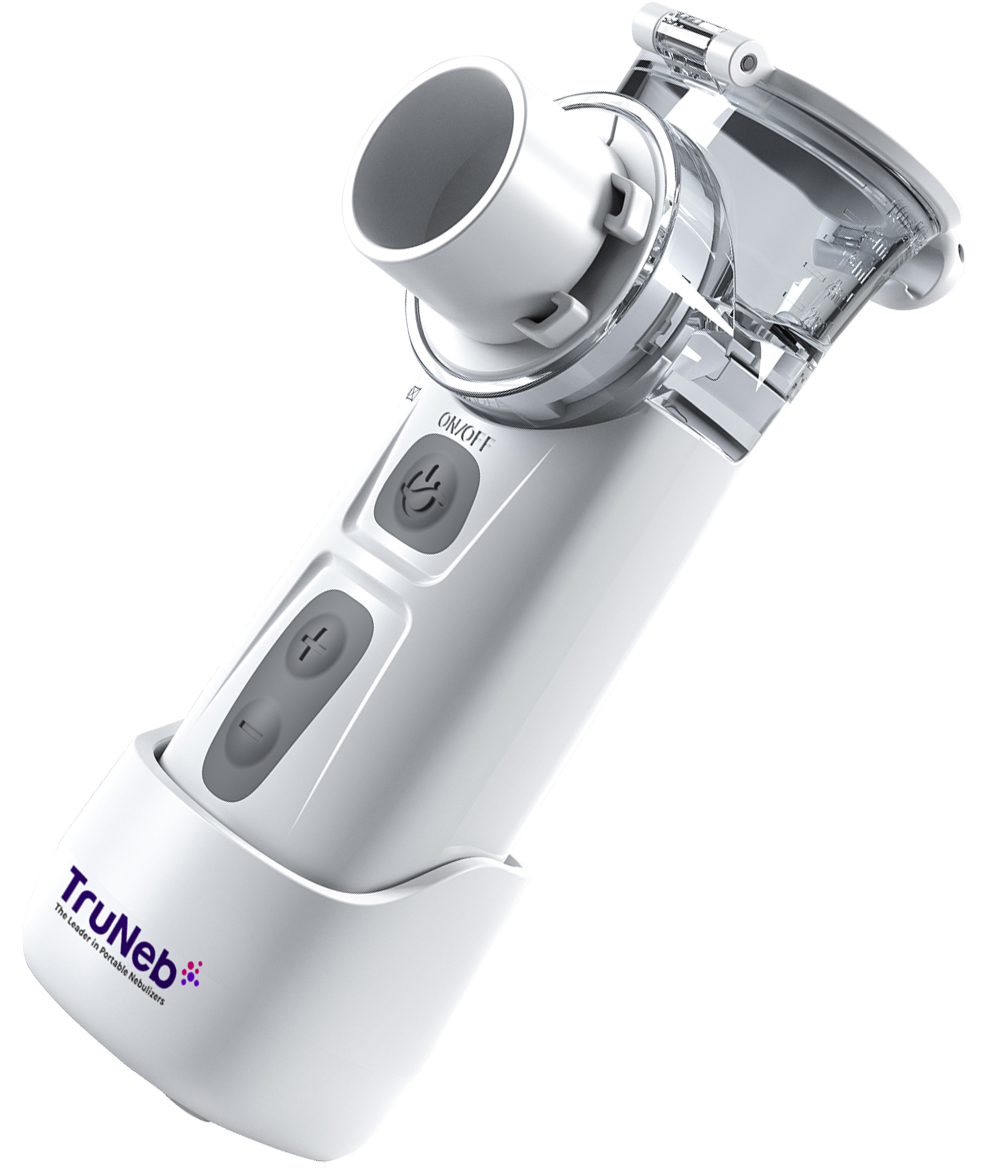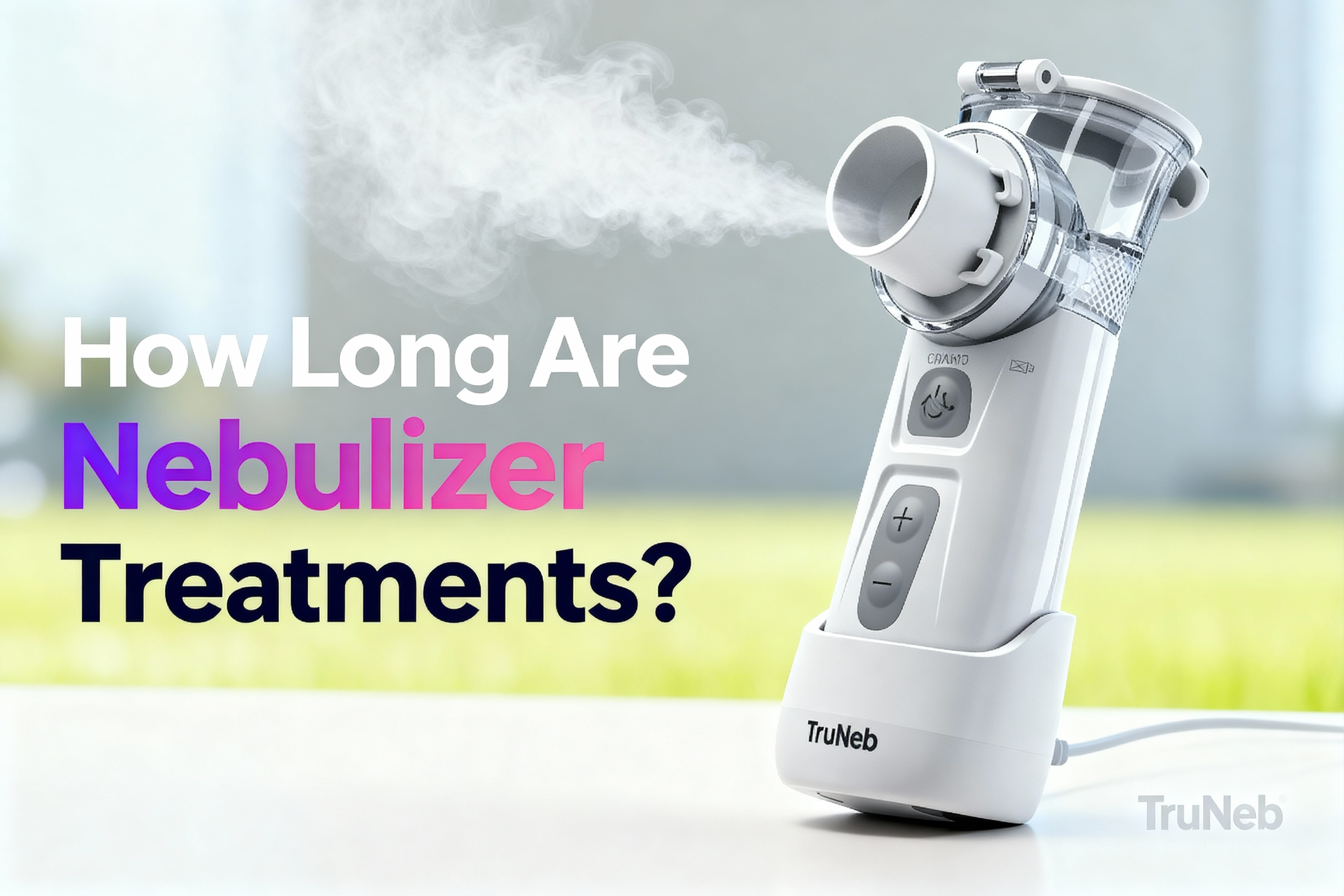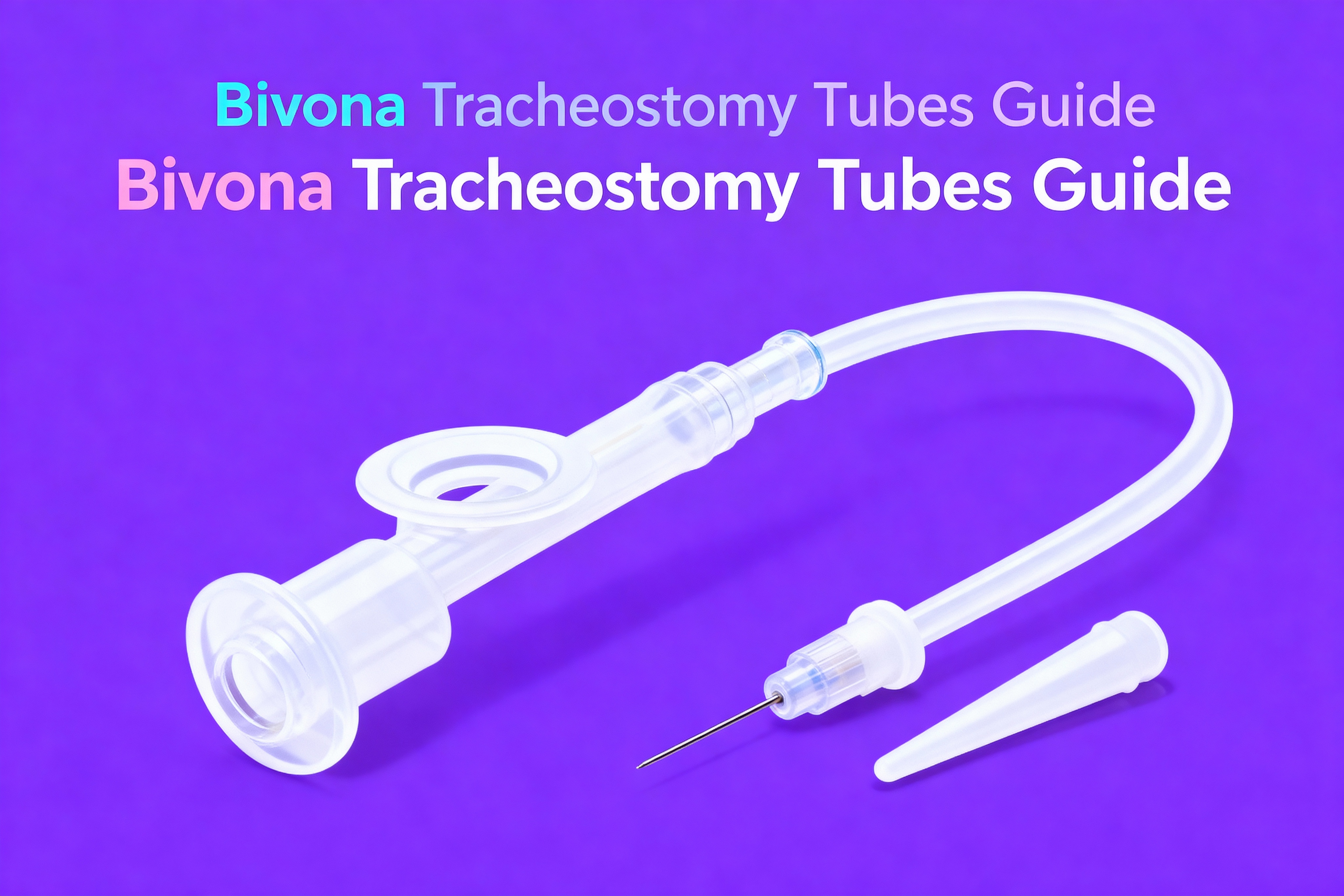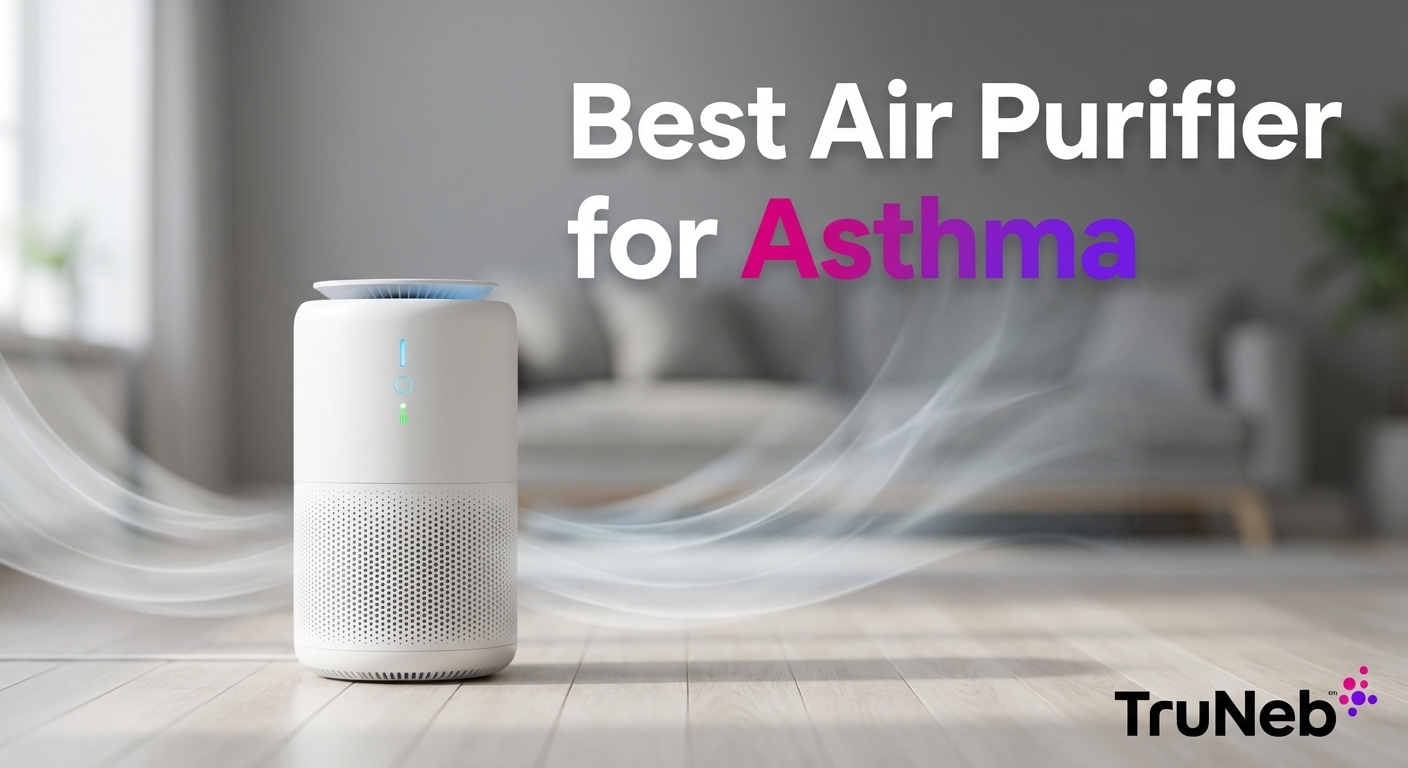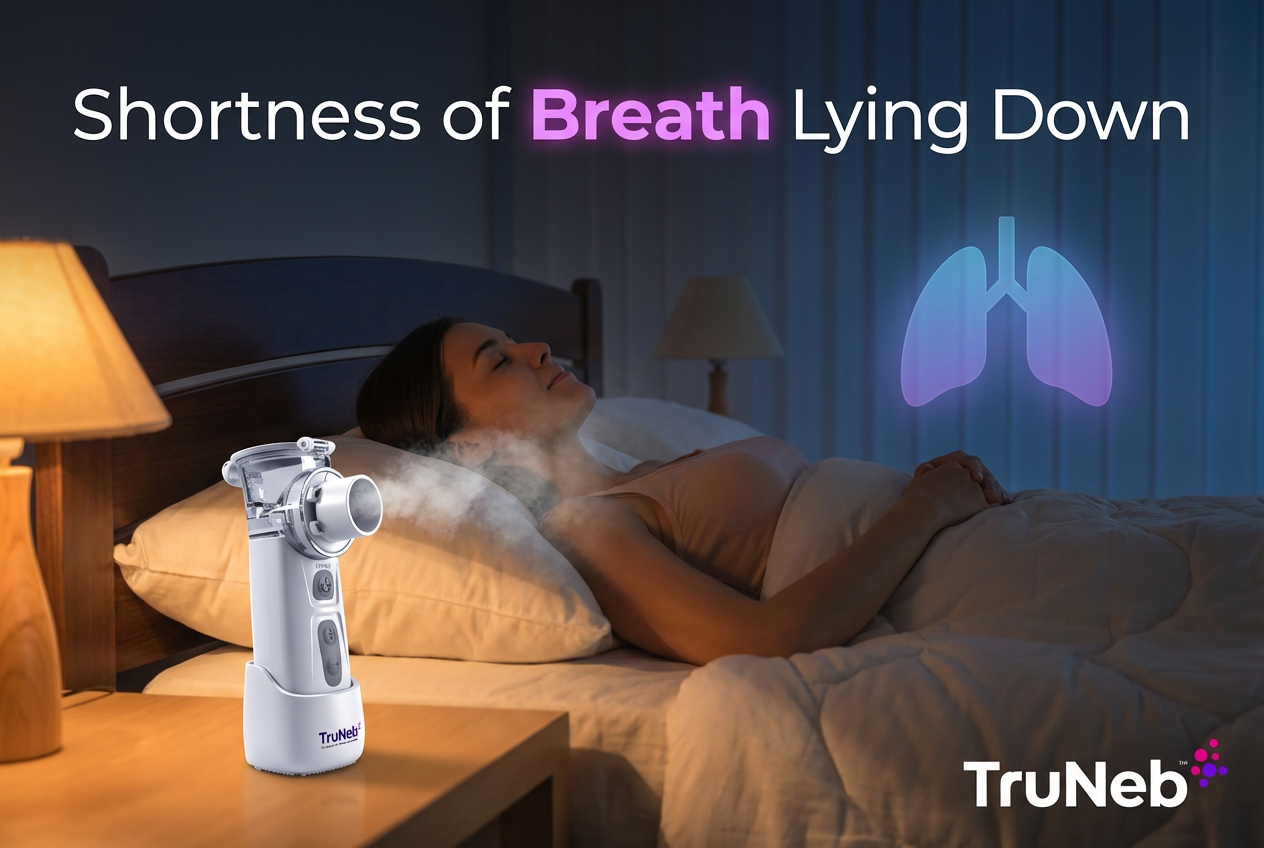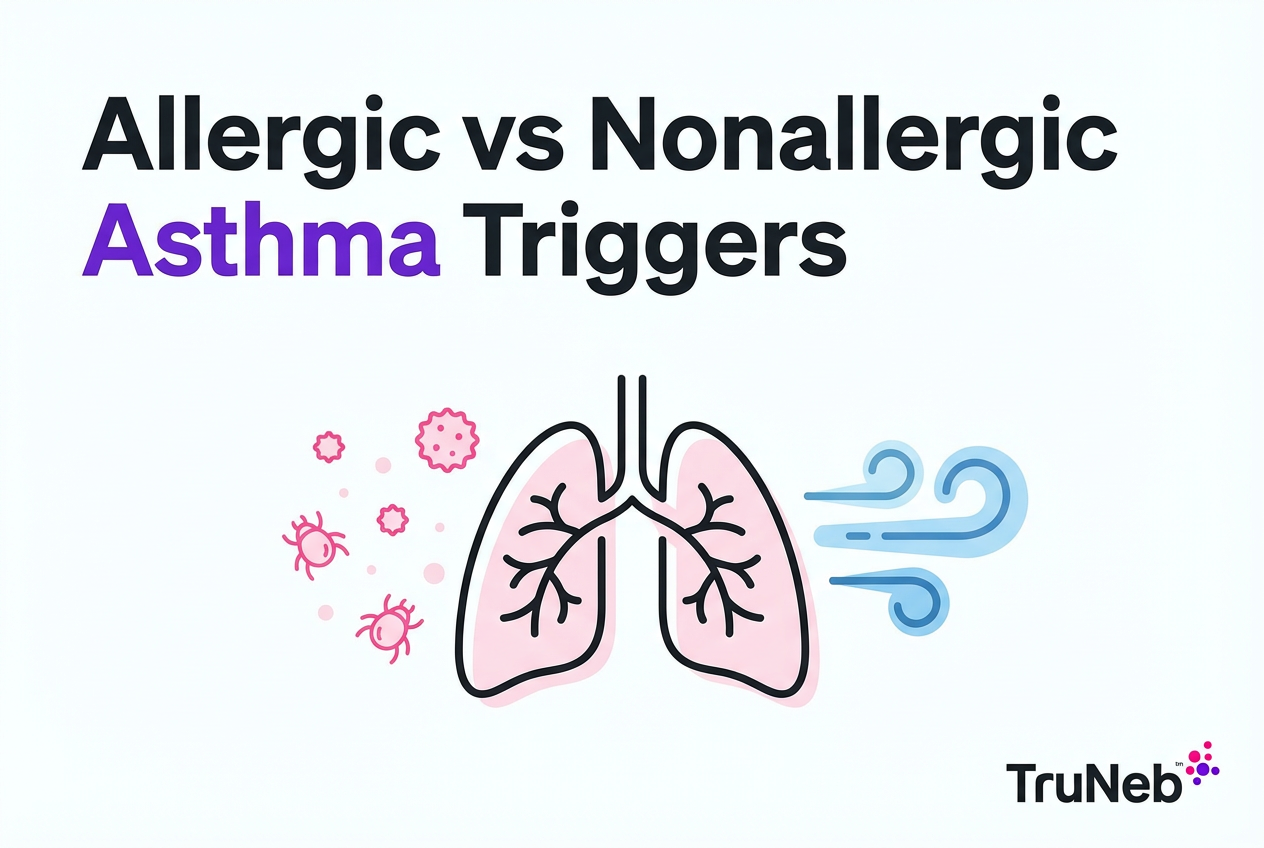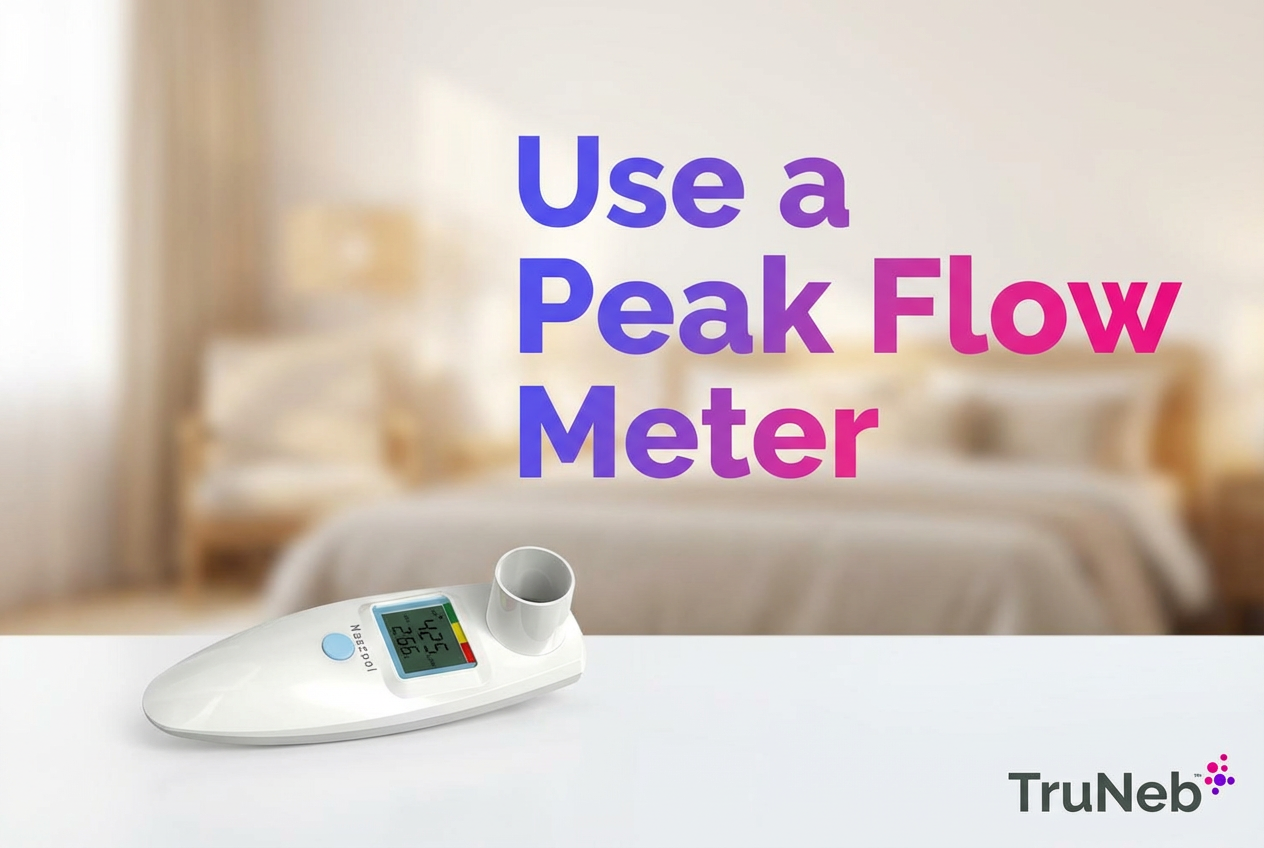On this page
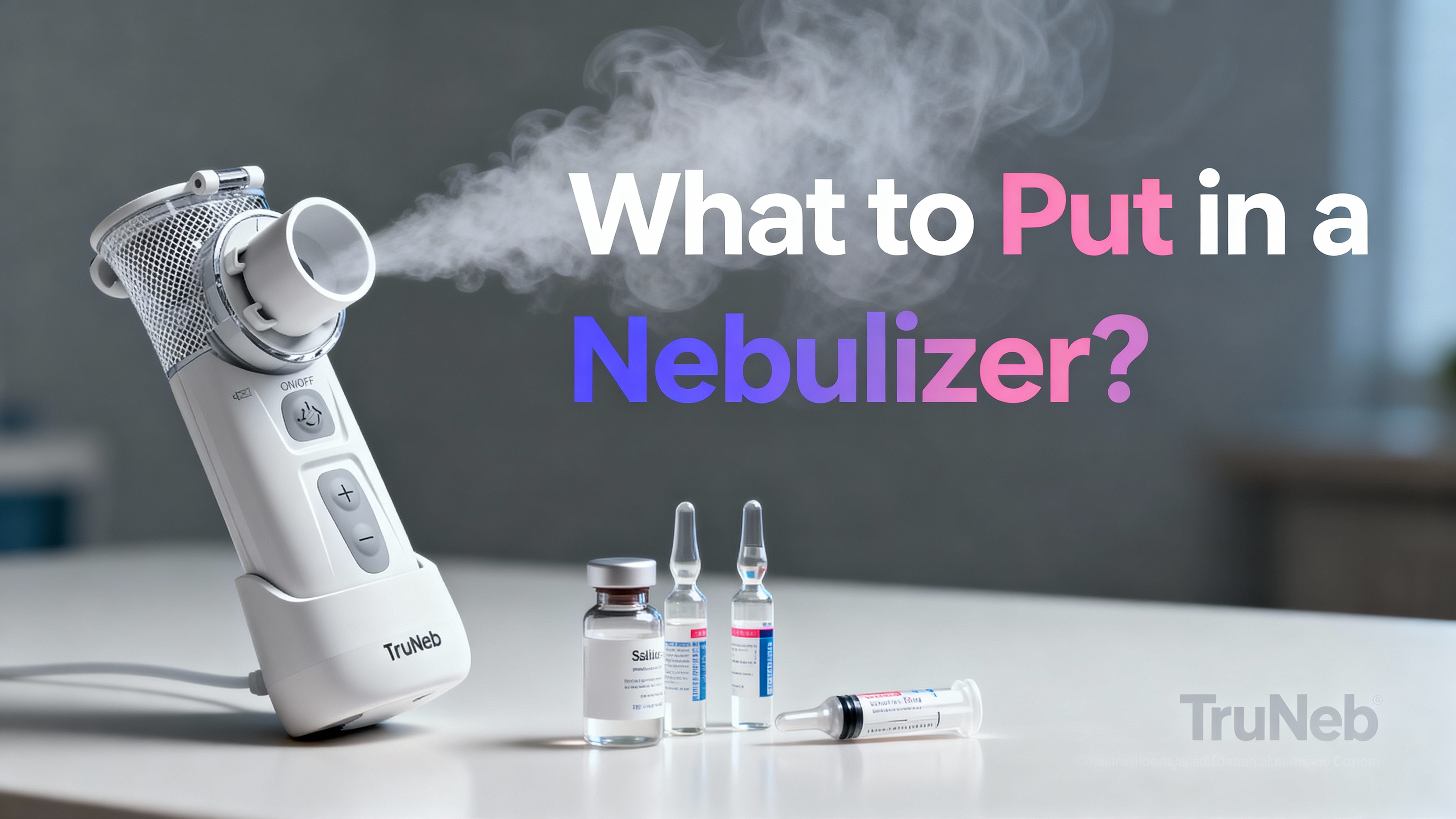
Use Saline Solution First
The safest thing to put in a nebulizer for a cough is sterile normal saline (0.9% sodium chloride). It’s simple salt water that matches your body’s fluids. Nebulized saline adds moisture to dry, irritated airways and helps loosen mucus so you can clear it more easily. You can buy sterile saline nebules over the counter.
Using a nebulizer with saline for cough can hydrate irritated airways and help loosen mucus.
You can purchase directly on our website at TruNeb.com
- 3% Hypertonic Saline Solution
- 7% Hypertonic Saline Solution

Tips:
- People typically sit upright and breathe the mist in slowly.
- Choose a well-fitting mask or mouthpiece so the mist reaches your lungs.
- Clean your nebulizer parts after each use.
Saline won’t cure the cause of a cough, but it can make coughing fits less harsh by hydrating and thinning mucus.
Normal saline is the go-to nebulizer solution for most coughs because it’s safe, non-medicated, and helps loosen phlegm.
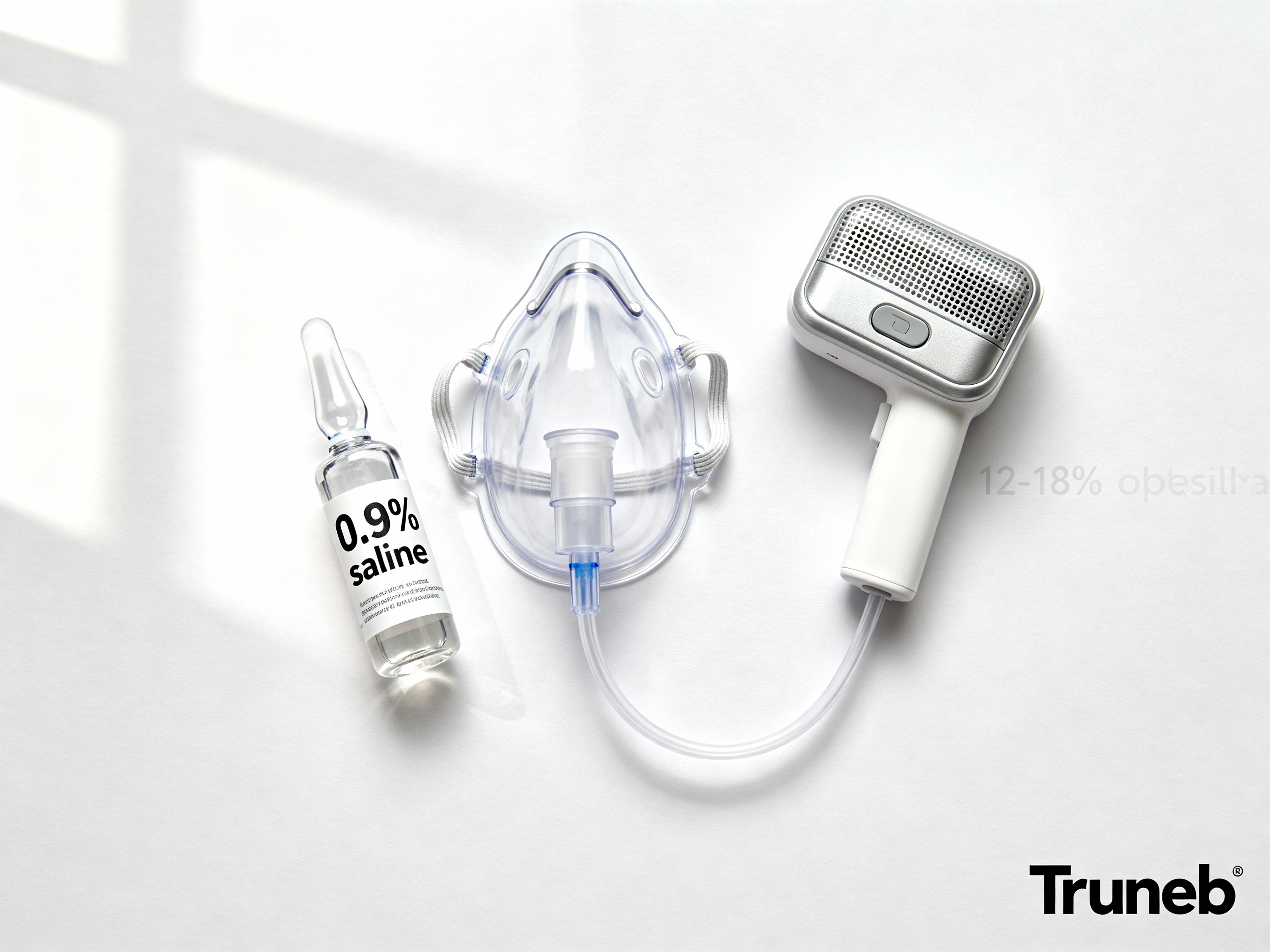
When to Use Hypertonic Saline (3% or 7%)
Hypertonic saline (3% or 7%) is a stronger salt solution (usually 3% or 7%). It pulls extra water into the airways, which thins thick mucus and helps you cough it out. This can be helpful for chest congestion, bronchitis, bronchiolitis, cystic fibrosis, or bronchiectasis. Some people notice more coughing at first as mucus breaks up.
Hypertonic saline for cough nebulizer treatments can help stubborn phlegm when guided by a doctor.
Tips:
- Doctors typically start with 3% when it’s appropriate.
- Talk with your doctor first if you have asthma or sensitive airways.
- Stop and talk to a doctor if your breathing tightens up.
3% saline is sold over the counter online. 7% is used for very sticky mucus with your doctor’s guidance. A portable mesh nebulizer like TruNeb™ makes these short saline sessions quiet and easy to fit into your day.
Hypertonic saline (3% or 7%) can help stubborn phlegm by drawing water into the airways and thinning mucus.
| Option | What it is | Best for | Rx? |
|---|---|---|---|
| Normal saline (0.9%) | Sterile isotonic salt water | Dry, irritated cough; mild congestion | No |
| Hypertonic saline (3–7%)1 | Stronger salt solution | Thick phlegm; chest congestion | 3%: No; 7%: Ask your clinician |
| Bronchodilator (e.g., albuterol) | Relaxes airway muscles | Asthma/COPD cough with wheeze or tightness | Yes |
| Inhaled steroid (e.g., budesonide) | Reduces airway inflammation | Persistent inflammatory cough (asthma/COPD maintenance) | Yes |
| Mucolytic/other (e.g., acetylcysteine) | Thins very thick mucus | Special cases (CF, bronchiectasis) under specialist care | Yes |
| Do NOT use: oils, Vicks, plain water | Unsafe or unapproved substances | None | N/A |
1 3% saline is commonly available over the counter; 7% is typically used with clinical guidance. Hypertonic saline may briefly increase coughing as mucus loosens.
Only use solutions labeled for inhalation.
Prescription Nebulizer Medications for Cough
If saline isn’t enough and your cough is tied to a lung condition, a doctor can prescribe medicine for your nebulizer. These target specific problems.
Bronchodilators (e.g., albuterol, levalbuterol, ipratropium)
These relax the airway muscles. They’re commonly used for cough with wheeze or chest tightness from asthma or COPD. Relief can be quick during a flare.
Inhaled corticosteroids (e.g., budesonide)
These reduce airway inflammation over time. They help prevent persistent coughing from chronic asthma or COPD. They are not fast-acting.
Mucolytics and other specialty meds (e.g., acetylcysteine; dornase alfa for cystic fibrosis; in specific cases, inhaled antibiotics)
These can thin very thick mucus in chronic conditions like cystic fibrosis or bronchiectasis. They are used under specialist care only.
Only use prescription nebulizer medications that were prescribed to you for your condition. If you’re asking, “What can I use in my nebulizer besides albuterol?” the safe non-drug option is saline; other meds require a doctor’s guidance.
Nebulized medicines help when a cough has a clear cause (like asthma) and must be prescribed for you.
Nebulizer Solutions You Should Not Use
Using the wrong liquid can irritate or harm your lungs. Avoid the following:
- Essential oils or oil-based liquids (eucalyptus, peppermint, tea tree): Oils can reach deep into the lungs and may cause inflammation or lipoid pneumonia.
- Vicks or menthol products meant for vaporizers/topical use: These are not designed for medical nebulizers and can irritate airways.
- Plain water (tap or distilled): Not sterile and not isotonic. It can carry germs and may irritate lung tissue.
- Household liquids or cough syrups: Only use solutions made for inhalation.
If you don’t have saline yet, it’s better to wait and get sterile saline than to nebulize water or home mixtures.
Never nebulize oils, Vicks, or plain water—use only sterile saline or prescribed solutions.
Use the Right Device and Technique
Any well-functioning nebulizer can deliver saline or prescribed meds, but comfort and particle size matter. Portable mesh nebulizers are quiet and make an ultra-fine mist, which helps treatments feel easier and reach deeper.
A portable mesh nebulizer like TruNeb offers:
- Quiet operation for kids and nighttime use.
- Fine mist delivery for consistent sessions.
- Lightweight design that fits in a small bag.
Tips for better results:
- Sit upright and breathe slowly through the mouthpiece or mask.
- Keep a good seal so the mist doesn’t leak.
- Clean and dry parts after every use to prevent germs and clogs.
- You might see boxes labeled ‘steam inhaler’—these are NOT for breathing medications.
A clean, quiet mesh nebulizer plus good technique makes every saline session work better.
When to See a Doctor (Safety Guide)
- ⚠️ Get urgent care for blue lips/skin, severe trouble breathing, chest pain, or coughing blood.
- ⏱️ See a doctor if your cough lasts more than 3 weeks, keeps getting worse, or comes with a high fever, weight loss, or night sweats.
- 🧪 Nebulizers ease symptoms; they don’t cure the cause. You might need testing and a treatment plan.
Talk to your doctor before trying a new medication or changing a nebulizer treatment.
Get medical care if your cough is severe, lasts more than 3 weeks, or comes with warning signs like trouble breathing, chest pain, or blood.
Frequently Asked Questions
Tap or click a question below to see the answer:
Use sterile normal saline as a non-drug option. Other medicines (ipratropium, budesonide, etc.) require a prescription and are used for specific diagnoses.
Hypertonic saline (3% or 7%) can help thin thick phlegm so it’s easier to cough out. Doctors typically use 3% first; talk with your doctor if you have sensitive airways.
No. Plain water isn’t sterile or isotonic and may irritate lungs or introduce germs. Use sterile saline instead.
No. Oils and menthol products aren’t made for medical nebulizers and may irritate or harm your lungs.
Saline mist can soothe a dry, irritated cough by hydrating the airways. If the cough is from asthma or another condition, you might need a doctor’s plan.
Disclaimer
This article is for informational purposes and isn’t a substitute for professional medical advice. Always talk to your doctor about your symptoms and treatments.

